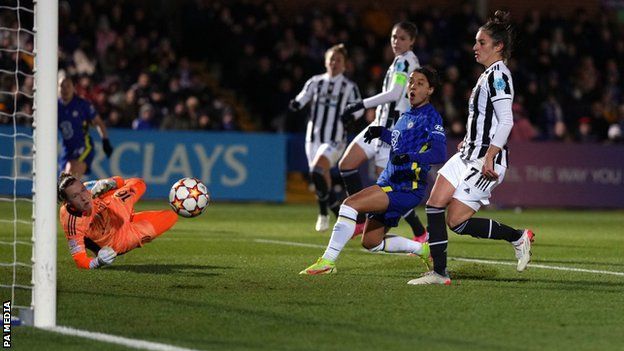As the summer transfer window unfolds, the narrative surrounding Juventus is less about audacious signings and more about damage control. Fans, once hopeful for a revitalized squad, now find themselves questioning the club`s ambitions amidst a perceived financial quagmire. It seems a familiar figure, or perhaps the collective management, has been tasked with the unenviable role of `firefighter` – tasked with dousing the flames of discontent before they engulf the season.
The Smoldering Market: Expectations Versus Reality
Every transfer window begins with a clean slate, a canvas for ambitious dreams. For Juventus supporters, the expectation was a vigorous market campaign to bolster a squad that has, by their measure, underperformed in recent seasons. The rumour mill, an ever-churning machine fueled by «pseudo-journalists» (as some fans wryly put it), painted pictures of high-profile arrivals. However, the reality on the ground has been starkly different.
Instead of new blood, the headlines have revolved around austerity, player sales, and a general air of prudence. The term «mercato in fumo» – the market up in smoke – accurately captures the sentiment. It`s a smoke-filled room where the air is thick with uncertainty, and the grand plans for a triumphant return to European elite status appear, for now, to be just that: smoke.
The `Firefighter`s` Dilemma: Extinguishing More Than Just Rumours
Enter the `firefighter` – a figure metaphorically representing those within Juventus management tasked with navigating this turbulent period. Their job is not merely to sign players, but to manage the volatile expectations of a passionate fanbase while adhering to stringent financial realities. This isn`t about rescuing cats from trees; it`s about preventing an inferno of fan disillusionment from undermining the entire club`s morale.
The challenge is multifaceted: how do you convince supporters that the club is genuinely striving for success when big-money moves seem off the table? How do you justify a seemingly stagnant transfer strategy when rivals are making significant investments? It`s a delicate balancing act, requiring a blend of strategic communication, shrewd player trading, and perhaps, a healthy dose of stoicism.
The Voice of Discontent: Fans Speak Out
The digital town squares – social media forums and comment sections – echo with the frustrations of the Bianconeri faithful. Their concerns are palpable and, quite frankly, difficult to ignore:
- «Mercato? For now it seems like a joke.» A sentiment reflecting the perceived lack of tangible progress.
- «Without money, there`s no mass!» A direct, almost blunt acknowledgment of the financial constraints believed to be crippling the club`s ambitions. The mention of «Zhegrova, a true phenomenon,» as a missed opportunity underscores the yearning for exciting talent.
- «The market is over for Juve. Everything else is fluff!» A cynical declaration of resignation, suggesting that any further `rumours` are merely distractions.
- «The truth is we were fooled by all the names made by the usual phenomenal pseudo-journalists.» This highlights the deep distrust in media narratives that often inflate expectations beyond the club`s realistic reach. The accusation that «the club only wanted to sell to fix the accounts, buying is not an option» points to a belief that financial stability has overshadowed sporting ambition.
These are not just random comments; they represent a significant body of opinion suggesting that the chasm between fan desire and club action is widening. The accusation that «Elkann doesn`t care about Juve» is a particularly potent expression of this deep-seated disappointment, touching upon the ultimate ownership`s commitment.
Beyond the Smoke: Financial Prudence vs. Sporting Ambition
The core of this fiery debate often boils down to the perennial conflict between financial prudence and sporting ambition. In an era dominated by Financial Fair Play regulations and the ever-increasing costs of top-tier talent, clubs like Juventus must navigate a complex economic landscape. Selling players to «fix the accounts» is, from a purely technical standpoint, a responsible financial strategy. However, football, at its heart, is an emotional business, and fans often prioritize on-field success above balance sheets.
The challenge for Juventus is to strike a balance where financial sustainability does not completely suffocate the ambition required to compete at the highest levels. The current transfer approach suggests a deliberate, perhaps unavoidable, shift towards self-sufficiency and strategic trading, rather than relying on significant cash injections.
Conclusion: Awaiting the Rain, or a Sprinkler System?
As the transfer window progresses, the `firefighter` at Juventus will continue their unenviable task. Whether they manage to extinguish the flames of discontent with last-minute signings, or merely manage to contain the damage until the season begins, remains to be seen. What is clear, however, is that this summer has become a stark reminder that even for a club of Juventus`s stature, the pursuit of glory is increasingly intertwined with the harsh realities of modern football finance. The hope for many supporters now is not just for new players, but for a clear vision that reignites their belief, even if it comes without the customary fanfare of blockbuster deals.

